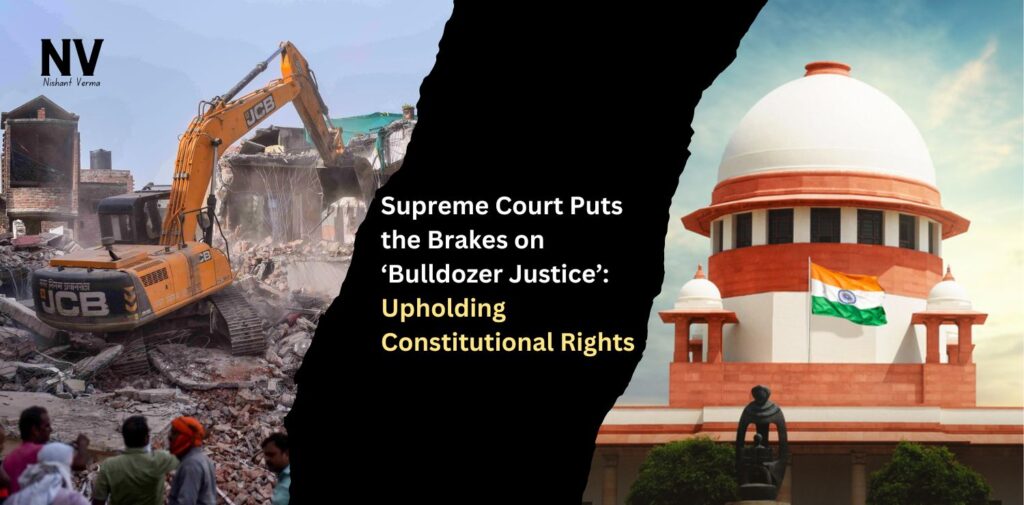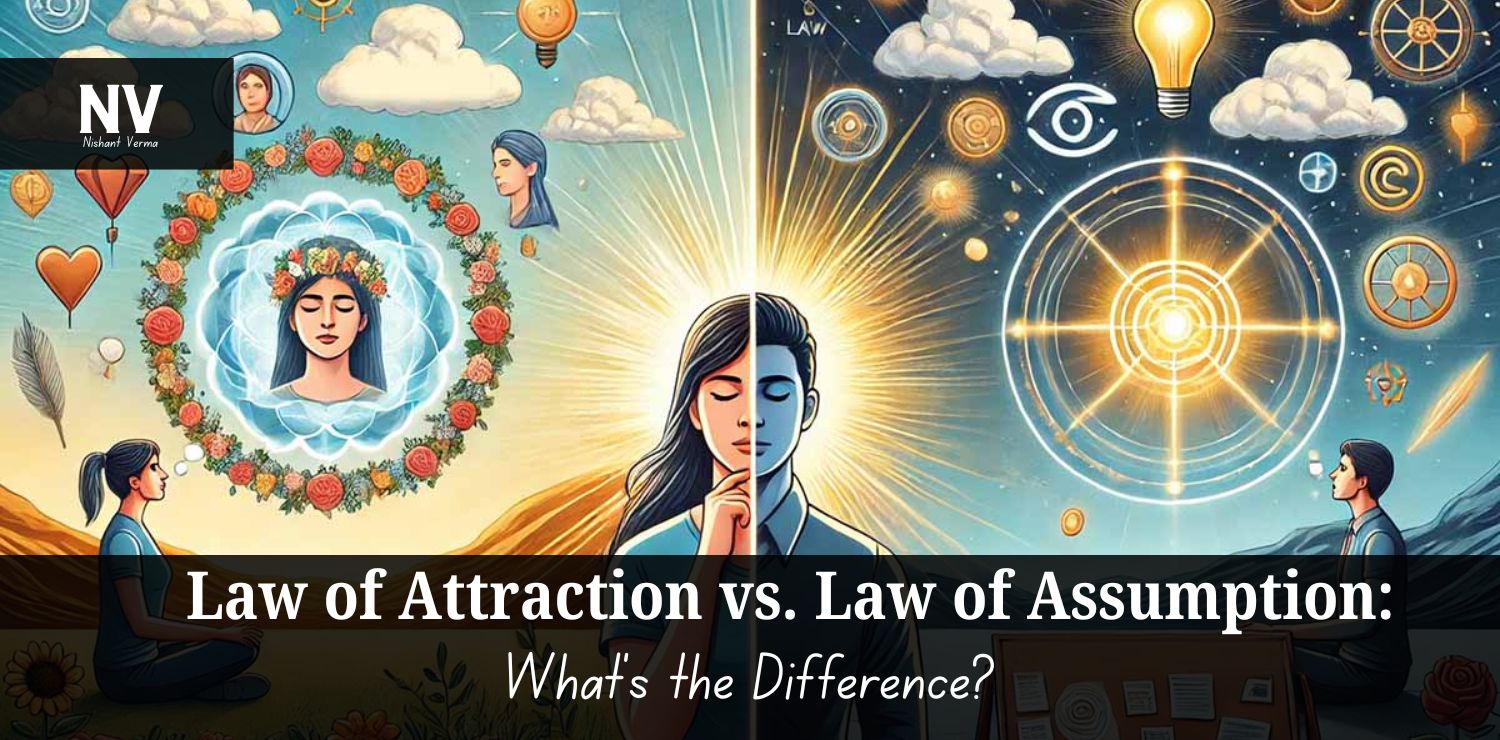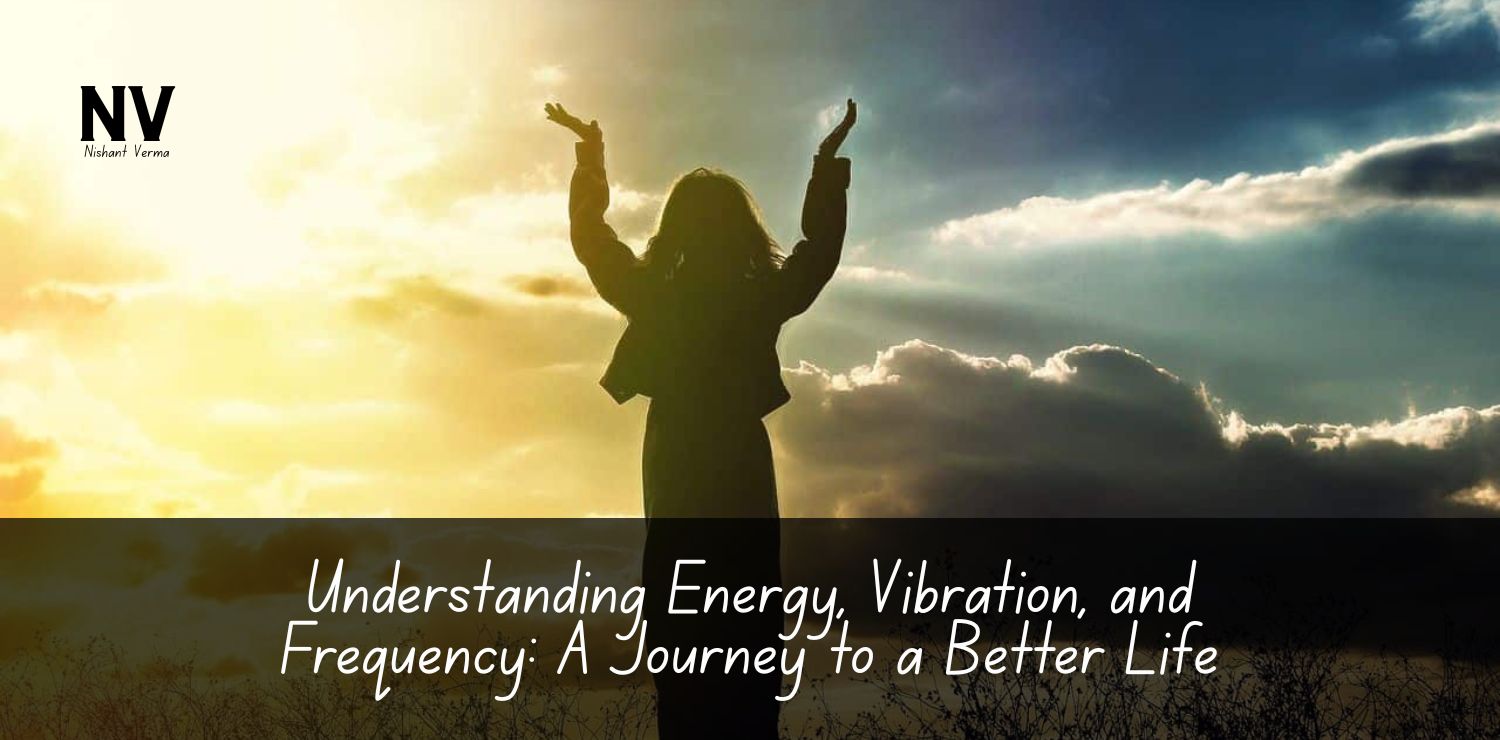In a landmark decision that resonated across the nation, the Supreme Court of India has recently placed a stay on the ongoing practice of using bulldozers to demolish properties associated with individuals accused of criminal activities. Dubbed as “bulldozer justice,” this practice has come under intense scrutiny, with many questioning its legality and its alignment with the principles of constitutional governance.
Background of ‘Bulldozer Justice’ and the Need for Intervention
Over the past few years, certain state governments have adopted a controversial approach towards tackling crime and alleged illegal activities. Properties belonging to individuals accused of crimes have been demolished using bulldozers, often under the pretext of removing unauthorized constructions. While the stated intent is to enforce law and order, critics argue that these demolitions are punitive measures aimed at intimidating individuals and communities, rather than a legitimate means of upholding the law.
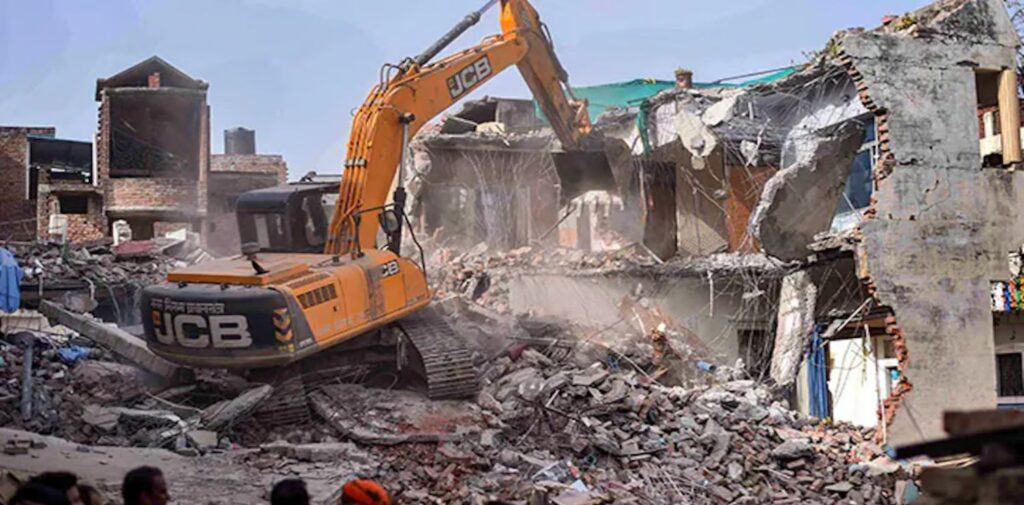
The use of bulldozers has not been limited to properties of those convicted of crimes but has also extended to those merely accused. This has led to widespread concerns regarding the presumption of innocence—a fundamental tenet of any justice system. In many cases, these demolitions have been carried out swiftly, without giving the accused an opportunity to present their case or seek legal recourse, raising questions about the due process of law.
The Supreme Court’s intervention, therefore, comes as a crucial step in ensuring that the principles of justice are not sacrificed at the altar of expedient law enforcement.
Supreme Court’s Observations and the Interim Order
In its interim order, the Supreme Court emphasized that there would be no further bulldozer demolitions until October 1, 2024, unless the concerned authorities obtained explicit permission from the Court. This order effectively halts any demolition activities across states that have been employing bulldozers as a means of enforcing discipline, particularly in cases involving alleged criminal activities.
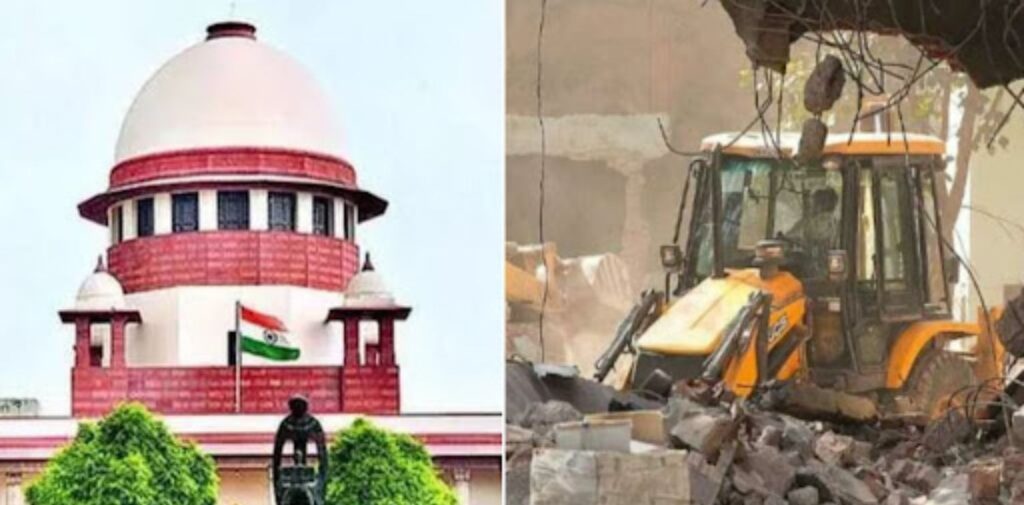
The Court’s observations during the hearings were scathing. It questioned the rationale behind such demolitions and sought a detailed explanation from the state governments on the legality and necessity of using such measures. The Bench highlighted that demolishing properties without following due procedure not only undermines the rule of law but also infringes upon the constitutional rights of individuals.
A Blow to Arbitrary Use of State Power
The Supreme Court’s stay order has been hailed as a significant victory by human rights activists, legal experts, and political commentators. They argue that the unchecked use of bulldozers has led to a situation where the state appears to be acting as judge, jury, and executioner. Such actions set a dangerous precedent, where executive authorities may be emboldened to take the law into their own hands, bypassing established legal processes.
The order also serves as a reminder to state governments that they are accountable to the Constitution and must act within the framework of the law. Arbitrary actions, even if justified under the guise of law enforcement, cannot be condoned if they violate the fundamental rights of citizens
Impact of the Order on States and Ongoing Demolition Drives
Several states, including Uttar Pradesh and Madhya Pradesh, have been at the forefront of using bulldozers to demolish properties associated with alleged criminals and their families. In many instances, these actions have been carried out without proper notice or hearings, sparking protests and legal challenges.
The Supreme Court’s order has put a temporary halt to such activities and has provided relief to those facing the threat of having their properties razed. Legal experts have pointed out that the order will have a far-reaching impact, as it compels the states to reassess their approach and to ensure that any future actions are in compliance with legal norms and procedures.
The Political and Social Implications of ‘Bulldozer Justice’
The use of bulldozers as a tool of enforcement has taken on political overtones in recent years. In some cases, the demolitions have been seen as targeting specific communities, leading to allegations of discrimination and bias. The practice has been criticized for being more about political posturing and less about genuine law enforcement.
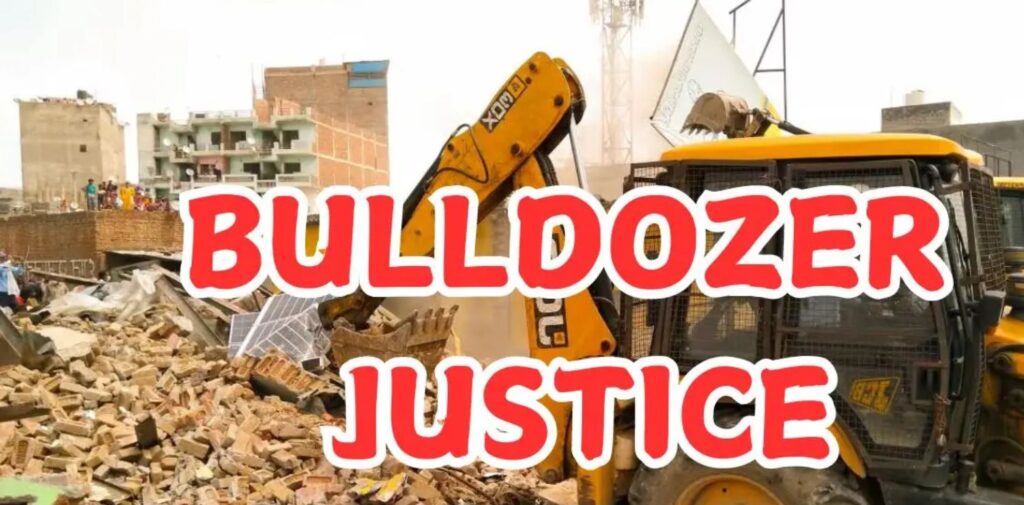
Political parties have been divided on the issue. While some have defended the use of bulldozers as a strong deterrent against crime, others have condemned it as an abuse of power. The Supreme Court’s order has, therefore, become a flashpoint in the ongoing debate over the role of the judiciary in curbing executive excesses.
Legal and Ethical Considerations: A Move Towards Accountability
The Supreme Court’s stay order reflects a growing unease within the judiciary over the use of state machinery to carry out punitive actions. Legal experts have argued that the state’s power to demolish properties should be exercised with extreme caution, and only after ensuring that all legal avenues have been exhausted.
The order also raises important ethical questions about the role of law enforcement in a democratic society. Is it justifiable to demolish someone’s property merely because they are accused of a crime? What safeguards are in place to prevent the misuse of such power? These are questions that the Supreme Court’s order has brought to the forefront, compelling the authorities to introspect and reassess their approach.
Looking Ahead: What’s Next?
The Supreme Court’s stay order is an interim measure, and the next hearing on October 1 will be crucial in determining the future course of action. The Court has indicated that it may issue more comprehensive guidelines to regulate the use of demolitions in cases involving alleged criminal activities. Such guidelines, if formulated, could provide a much-needed check on the use of executive power and ensure that the rule of law is upheld.
In the meantime, the stay order has provided a temporary reprieve to those facing the threat of bulldozer justice. It has also sparked a broader debate on the need for judicial intervention to protect the rights of citizens and to prevent the state from overstepping its bounds.
Conclusion: Upholding the Sanctity of the Constitution
The Supreme Court’s order against bulldozer justice is a step in the right direction. It reinforces the importance of adhering to legal procedures and upholding the fundamental rights of individuals, even in cases involving serious allegations. As the country awaits the next hearing, there is hope that the judiciary will continue to play its role as the guardian of constitutional values and will ensure that justice is not only done but is seen to be done.
In an era where the balance between law enforcement and individual rights is often precarious, the Supreme Court’s intervention serves as a reminder that the ends cannot justify the means, and that the rule of law must prevail over expedient justice.

